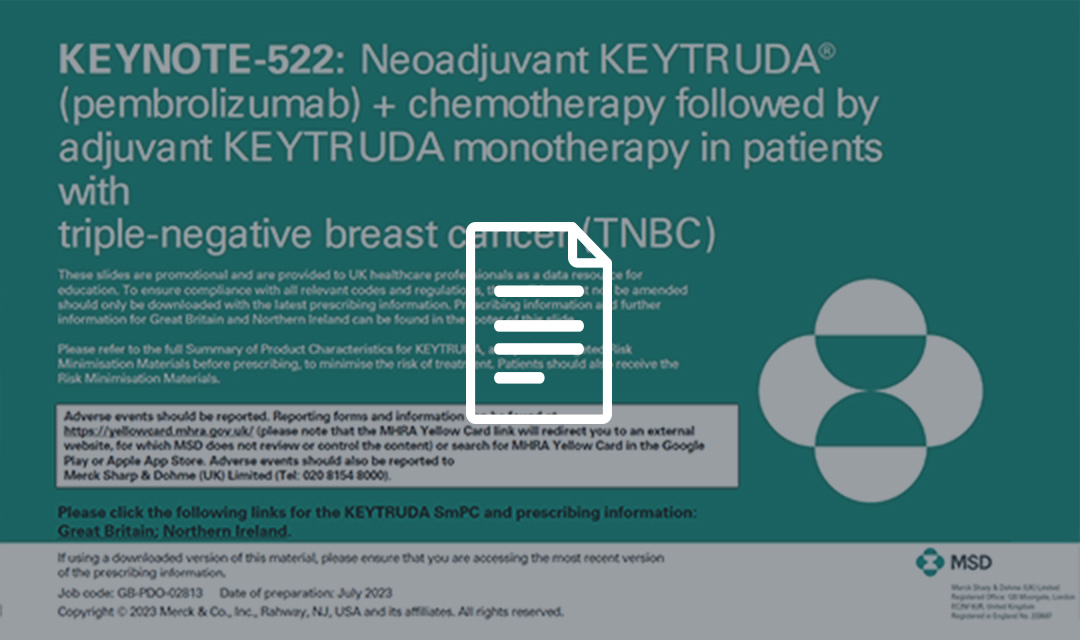About KEYTRUDA in triple-negative breast cancer (TNBC)
Neoadjuvant KEYTRUDA® (pembrolizumab) + chemotherapy followed by adjuvant KEYTRUDA monotherapy in patients with triple-negative breast cancer (TNBC)
Prescribing Information (Great Britain) & Prescribing Information (Northern Ireland) [External links]
| Locally advanced or early-stage triple-negative breast cancer, at high risk of recurrence.1 | |
| For use in | KEYTRUDA, in combination with chemotherapy as neoadjuvant treatment, and then continued as monotherapy as adjuvant treatment after surgery, is indicated for the treatment of adults with locally advanced or early-stage triple-negative breast cancer, at high risk of recurrence.1 |
| Dosing schedule | The recommended dose is either 200 mg every 3 weeks or 400 mg every 6 weeks administered as an intravenous infusion over 30 minutes.1 |
| Duration of treatment | Patients should be treated with KEYTRUDA until disease progression or unacceptable toxicity.1 |
| Clinical trial | KEYNOTE-522 was a Phase 3 randomised (2:1), double-blind, multicentre, placebo-controlled study, evaluating the efficacy and safety of KEYTRUDA in combination with chemotherapy (carboplatin and paclitaxel followed by doxorubicin or epirubicin and cyclophosphamide), given as a neoadjuvant treatment and continued as monotherapy as adjuvant treatment after surgery, in newly diagnosed, previously untreated, high-risk early-stage TNBC patients (N=1,174).1 Access the KEYNOTE-522 clinical data presentation above. Access |
Refer to the Summary of Product Characteristics and Risk Minimisation Materials available on the emc website before prescribing, in order to help reduce the risk associated with KEYTRUDA.
Reference
- KEYTRUDA Summary of Product Characteristics.
Supporting documentation
Prescribing Information (Great Britain) & Prescribing Information (Northern Ireland)
By clicking the links above you will leave the MSD Connect website and be taken to the emc PI portal website.
